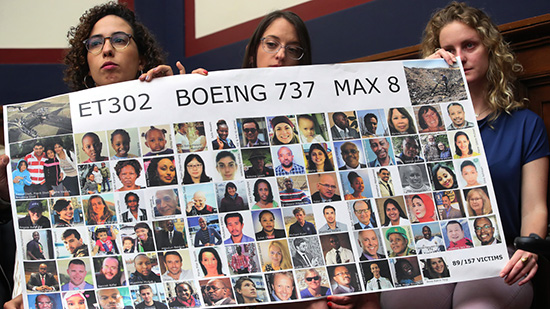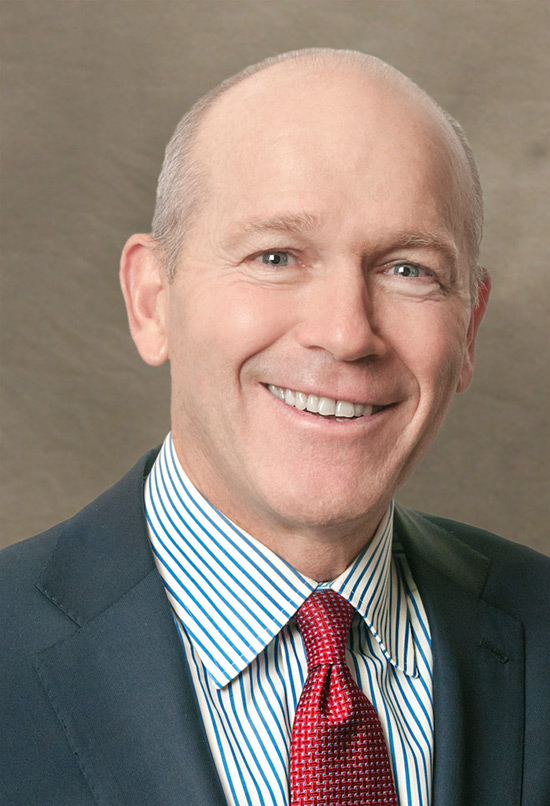
从1月13日起,大卫·卡尔霍恩将履新波音首席执行官一职,成为该公司在短短不到五年时间内的第四任首席执行官。
卡尔霍恩有着丰富的工作经验,在加入波音前曾供职于不同行业的多家知名公司,拥有辉煌的职业生涯,曾在黑石集团、卡特彼勒和尼尔森控股等公司担任高管。
熟识卡尔霍恩的人对他的评价很高,在他们眼中,卡尔霍恩既是一位圆融的管理者,擅于平衡盈亏,又是 “救火队长”一般的人物。而现在,要想将这家麻烦缠身的美国企业拖出泥潭,卡尔霍恩将不得不充分发挥自己的这两种能力。
美国财政部部长史蒂夫·姆努钦在1月12日接受福克斯新闻采访时表示:“作为美国最大的出口商之一,波音的问题将毫无疑问地拖累美国的GDP,波音737 Max飞机停飞或将导致今年GDP降低50个基点。”此番言论也适时地提醒了人们,波音要想扭转局面难度何其大。
可以说,卡尔霍恩接手的是波音公司乃至现代商业史上最大的烂摊子。圣诞前夕,波音的董事会要求卡尔霍恩担任公司新任掌门,并带领这家经历了狮航和埃航两起空难(共造成346人丧生)的航空及国防巨头走出困境,而怎么看这都像是个无法完成的任务。
要想完成使命,他必须重获投资者、供应商、消费者和雇员的信任,修复与监管机构之间的关系,同时改变自以为是的企业文化。从近期公开的内部员工间信息可以清楚看出,这种企业文化已经在管理层和员工之间造成了裂痕,在公开的信息里,波音 737 MAX的设计师被称为“小丑”,而公司的主管则被称为“猴子”。此外,他还必须完成前任首席执行官丹尼斯·米伦伯格未能完成的使命——让波音 737 MAX复飞。
留给他的时间不多了。
卡尔霍恩需要尽快取得进展,一方面是因为资金消耗巨大,仅2019年第三季度,波音就消耗了41亿美元现金,另一方面,各方面对波音公司也越来越没有耐心。他将成为整个商界最为关注的人物之一,而且无论他是否愿意,在未来很长的一段时间内,他都将会出现在许多商学院的案例研究之中。

局内人做局外人的工作
有人认为,由于卡尔霍恩在波音董事会任职已经有10年之久,而且波音 737 MAX飞机正是在其监管下发生严重问题,因而他并不是新任首席执行官的最佳人选。也有批评声音认为,卡尔霍恩此前从未担任过飞机制造公司的负责人,也不像大多数波音的掌门人一样拥有工程背景。
耶鲁大学管理学院资深副院长、莱斯特克朗教授(管理实践)杰弗里·索恩菲尔德并不认可这一观点,他说:“卡尔霍恩在公司内外都享有盛誉,各方面都对他青睐有加。他与华尔街和工程界保持着极好的关系,在通用电气负责飞机相关业务时积累下的权威现在依然有用。”
卡尔霍恩在处理企业危机方面也具有丰富的经验,2017年,在他担任卡特彼勒董事长期间,曾经成功应对过多个联邦机构对该公司展开的税收欺诈突袭调查。
虽然不是工程师,但卡尔霍恩曾在通用电气公司任职达26年之久,曾负责通用电气的飞机发动机和运输(飞机和铁路)部门。卡内基梅隆大学的工程与公共政策教授杰伊·艾普特表示,工程背景并不一定是帮助波音公司逆转局势的关键。
“波音737 MAX出现软件问题时,整个组织都是工程师们在负责。”艾普特表示。“波音真正需要的是一种安全文化。创建这种文化需要的是认真对待安全问题的领导人,而不一定要有工程背景。董事会、首席执行官和首席风险官都必须全心投入安全文化的创建之中,他们需要明确表示:‘时间表很重要,但没有安全,公司将万劫不复。’”
卡尔霍恩的另一个优势是他对公司的了解,波音是一家拥有13万员工的庞大公司,从未在波音工作过的外部人士难免会缺乏对公司运营情况和企业文化的了解。索恩菲尔德说:“即便人选合适,外人要想胜任首席执行官的工作也得花费18个月的时间来学习。”而卡尔霍恩则是知己知彼,同时也得到了波音董事长、美国大陆航空前负责人劳伦斯·凯尔纳和首席财务官格雷格·史密斯的支持(史密斯在过去三周中担任临时首席执行官)。索恩菲尔德表示,这种支持至关重要,他还将卡尔霍恩称为“老波音优秀文化的传承者”。
对于一直在烧钱的波音而言,时间至关重要。在2019年的前9个月中,波音的经营现金流为负的2.26亿美元,而2018年的同期数字为124亿美元。据报道,波音欲进行50亿美元债务融资,以弥补成本。
上市公司高管业绩分析机构Management CV发布的一份客户报告指出,“经营现金流的突然下降导致公司杠杆大幅提升,或将破坏其与供应商的关系。”
财务问题出在商用飞机部门,而该部门的收入占波音总收入的60%以上。截至目前,波音仍然在竭力避免裁员行动。然而,在波音 737 MAX复飞前,如果不采取类似的激进措施,波音将无法堵上财务窟窿。
现金流并不是波音面临的唯一问题。Tigress Financial Partners是一家为大型投资者提供咨询的公司,同时也为客户持有部分波音公司股票,其首席投资官兼研究总监伊万·费恩塞斯认为,波音公司需要拿出计划,让波音 737 MAX能够最迟在初夏实现复飞。
重建信任
波音 737 MAX复飞、重建信任都绝非易事。波音与美国联邦航空管理局(FAA)和全球其他监管机构的关系已经破裂。Fox Rothschild的航空法律业务合伙人兼联席主席马克·多姆罗夫表示:“波音的首要任务是恢复其与监管机构的关系。”
他指出,最近公布的波音内部电子邮件内容令人愤怒,从这些邮件可以看出波音藐视监管的态度。“某种程度上说,有些邮件的内容可能被解读为对FAA监管的嘲弄。”
这显然不是波音第一次藐视监管机构。彼得·戈尔兹说:“波音对我们的态度一直很强硬。”彼得·戈尔兹目前是政府和公共关系公司O'Neill and Associates的高级副总裁,曾于1996年至2000年间担任美国国家运输安全委员会(NTSB)的董事总经理。20世纪90年代,NTSB曾处理过两起波音737坠毁事故,其中涉及方向舵动力控制单元故障,在某些情况下,该故障会使方向舵转向与飞行员意图相背,跟现在出现的问题在很多方面都颇为相似。戈尔兹表示:“直到最后一刻,波音都在想方设法阻挠我们的工作。”
现在,波音737 MAX能否复飞、何时复飞都由FAA决定。因而修复双方关系对波音而言至关重要。重新建立他人对波音飞机性能的信任也是如此。波音 737 MAX飞机停飞,急需的新飞机也迟迟无法交付,让全球的航空公司都深受困扰,企业运营也受到不利影响。例如,美国航空集团便将波音诉至法庭,要求赔偿(该航空公司表示,波音737 MAX飞机停飞令其2019年的税前利润损失达5.4亿美元),最终双方达成部分和解。
飞机停飞也对消费者造成了不利影响。有些航空公司不得不取消了原本可由波音 737 MAX执飞的一些航班。也有航空公司不得不削减成本和/或提高票价。此外,航空旅客对再次搭乘波音737 MAX也深感不安。
还有波音的数千家供应商。
投资银行公司Cassel Salpeter&Co.的航空业务主管约瑟夫·史密斯表示:“波音对供应商通常极为强硬。”波音737 MAX飞机的停飞、停产让许多供应商苦不堪言。波音最大的供应商Spirit AeroSystems Holdings刚刚裁员20%,多达2800名工人。
卡尔霍恩必须在有限的时间内同时解决上述所有问题。索恩菲尔德将卡尔霍恩面临的任务称为“英雄般的使命”。
开工大吉。(财富中文网)
译者:梁宇
审校:夏林
从1月13日起,大卫·卡尔霍恩将履新波音首席执行官一职,成为该公司在短短不到五年时间内的第四任首席执行官。
卡尔霍恩有着丰富的工作经验,在加入波音前曾供职于不同行业的多家知名公司,拥有辉煌的职业生涯,曾在黑石集团、卡特彼勒和尼尔森控股等公司担任高管。
熟识卡尔霍恩的人对他的评价很高,在他们眼中,卡尔霍恩既是一位圆融的管理者,擅于平衡盈亏,又是 “救火队长”一般的人物。而现在,要想将这家麻烦缠身的美国企业拖出泥潭,卡尔霍恩将不得不充分发挥自己的这两种能力。
美国财政部部长史蒂夫·姆努钦在1月12日接受福克斯新闻采访时表示:“作为美国最大的出口商之一,波音的问题将毫无疑问地拖累美国的GDP,波音737 Max飞机停飞或将导致今年GDP降低50个基点。”此番言论也适时地提醒了人们,波音要想扭转局面难度何其大。
可以说,卡尔霍恩接手的是波音公司乃至现代商业史上最大的烂摊子。圣诞前夕,波音的董事会要求卡尔霍恩担任公司新任掌门,并带领这家经历了狮航和埃航两起空难(共造成346人丧生)的航空及国防巨头走出困境,而怎么看这都像是个无法完成的任务。
要想完成使命,他必须重获投资者、供应商、消费者和雇员的信任,修复与监管机构之间的关系,同时改变自以为是的企业文化。从近期公开的内部员工间信息可以清楚看出,这种企业文化已经在管理层和员工之间造成了裂痕,在公开的信息里,波音 737 MAX的设计师被称为“小丑”,而公司的主管则被称为“猴子”。此外,他还必须完成前任首席执行官丹尼斯·米伦伯格未能完成的使命——让波音 737 MAX复飞。
留给他的时间不多了。
卡尔霍恩需要尽快取得进展,一方面是因为资金消耗巨大,仅2019年第三季度,波音就消耗了41亿美元现金,另一方面,各方面对波音公司也越来越没有耐心。他将成为整个商界最为关注的人物之一,而且无论他是否愿意,在未来很长的一段时间内,他都将会出现在许多商学院的案例研究之中。
局内人做局外人的工作
有人认为,由于卡尔霍恩在波音董事会任职已经有10年之久,而且波音 737 MAX飞机正是在其监管下发生严重问题,因而他并不是新任首席执行官的最佳人选。也有批评声音认为,卡尔霍恩此前从未担任过飞机制造公司的负责人,也不像大多数波音的掌门人一样拥有工程背景。
耶鲁大学管理学院资深副院长、莱斯特克朗教授(管理实践)杰弗里·索恩菲尔德并不认可这一观点,他说:“卡尔霍恩在公司内外都享有盛誉,各方面都对他青睐有加。他与华尔街和工程界保持着极好的关系,在通用电气负责飞机相关业务时积累下的权威现在依然有用。”
卡尔霍恩在处理企业危机方面也具有丰富的经验,2017年,在他担任卡特彼勒董事长期间,曾经成功应对过多个联邦机构对该公司展开的税收欺诈突袭调查。
虽然不是工程师,但卡尔霍恩曾在通用电气公司任职达26年之久,曾负责通用电气的飞机发动机和运输(飞机和铁路)部门。卡内基梅隆大学的工程与公共政策教授杰伊·艾普特表示,工程背景并不一定是帮助波音公司逆转局势的关键。
“波音737 MAX出现软件问题时,整个组织都是工程师们在负责。”艾普特表示。“波音真正需要的是一种安全文化。创建这种文化需要的是认真对待安全问题的领导人,而不一定要有工程背景。董事会、首席执行官和首席风险官都必须全心投入安全文化的创建之中,他们需要明确表示:‘时间表很重要,但没有安全,公司将万劫不复。’”
卡尔霍恩的另一个优势是他对公司的了解,波音是一家拥有13万员工的庞大公司,从未在波音工作过的外部人士难免会缺乏对公司运营情况和企业文化的了解。索恩菲尔德说:“即便人选合适,外人要想胜任首席执行官的工作也得花费18个月的时间来学习。”而卡尔霍恩则是知己知彼,同时也得到了波音董事长、美国大陆航空前负责人劳伦斯·凯尔纳和首席财务官格雷格·史密斯的支持(史密斯在过去三周中担任临时首席执行官)。索恩菲尔德表示,这种支持至关重要,他还将卡尔霍恩称为“老波音优秀文化的传承者”。
对于一直在烧钱的波音而言,时间至关重要。在2019年的前9个月中,波音的经营现金流为负的2.26亿美元,而2018年的同期数字为124亿美元。据报道,波音欲进行50亿美元债务融资,以弥补成本。
上市公司高管业绩分析机构Management CV发布的一份客户报告指出,“经营现金流的突然下降导致公司杠杆大幅提升,或将破坏其与供应商的关系。”
财务问题出在商用飞机部门,而该部门的收入占波音总收入的60%以上。截至目前,波音仍然在竭力避免裁员行动。然而,在波音 737 MAX复飞前,如果不采取类似的激进措施,波音将无法堵上财务窟窿。
现金流并不是波音面临的唯一问题。Tigress Financial Partners是一家为大型投资者提供咨询的公司,同时也为客户持有部分波音公司股票,其首席投资官兼研究总监伊万·费恩塞斯认为,波音公司需要拿出计划,让波音 737 MAX能够最迟在初夏实现复飞。
重建信任
波音 737 MAX复飞、重建信任都绝非易事。波音与美国联邦航空管理局(FAA)和全球其他监管机构的关系已经破裂。Fox Rothschild的航空法律业务合伙人兼联席主席马克·多姆罗夫表示:“波音的首要任务是恢复其与监管机构的关系。”
他指出,最近公布的波音内部电子邮件内容令人愤怒,从这些邮件可以看出波音藐视监管的态度。“某种程度上说,有些邮件的内容可能被解读为对FAA监管的嘲弄。”
这显然不是波音第一次藐视监管机构。彼得·戈尔兹说:“波音对我们的态度一直很强硬。”彼得·戈尔兹目前是政府和公共关系公司O'Neill and Associates的高级副总裁,曾于1996年至2000年间担任美国国家运输安全委员会(NTSB)的董事总经理。20世纪90年代,NTSB曾处理过两起波音737坠毁事故,其中涉及方向舵动力控制单元故障,在某些情况下,该故障会使方向舵转向与飞行员意图相背,跟现在出现的问题在很多方面都颇为相似。戈尔兹表示:“直到最后一刻,波音都在想方设法阻挠我们的工作。”
现在,波音737 MAX能否复飞、何时复飞都由FAA决定。因而修复双方关系对波音而言至关重要。重新建立他人对波音飞机性能的信任也是如此。波音 737 MAX飞机停飞,急需的新飞机也迟迟无法交付,让全球的航空公司都深受困扰,企业运营也受到不利影响。例如,美国航空集团便将波音诉至法庭,要求赔偿(该航空公司表示,波音737 MAX飞机停飞令其2019年的税前利润损失达5.4亿美元),最终双方达成部分和解。
飞机停飞也对消费者造成了不利影响。有些航空公司不得不取消了原本可由波音 737 MAX执飞的一些航班。也有航空公司不得不削减成本和/或提高票价。此外,航空旅客对再次搭乘波音737 MAX也深感不安。
还有波音的数千家供应商。
投资银行公司Cassel Salpeter&Co.的航空业务主管约瑟夫·史密斯表示:“波音对供应商通常极为强硬。”波音737 MAX飞机的停飞、停产让许多供应商苦不堪言。波音最大的供应商Spirit AeroSystems Holdings刚刚裁员20%,多达2800名工人。
卡尔霍恩必须在有限的时间内同时解决上述所有问题。索恩菲尔德将卡尔霍恩面临的任务称为“英雄般的使命”。
开工大吉。(财富中文网)
译者:梁宇
审校:夏林
Beginning from January 13, David Calhoun steps into the cockpit as CEO of Boeing, the company’s fourth chief executive in just under five years.
Calhoun is highly seasoned. His path to Boeing follows a long and distinguished career at high-profile companies in multiple industries. He’s held top positions at Blackstone Group, Caterpillar and Nielsen Holdings, to name a few.
From those who know him well, Calhoun gets high marks as both a smooth operator, adept at making the numbers work, and as a kind of Mr. Fix-It. Calhoun will have to rely on both skills if he’s to right America’s most troubled company.
Just yesterday, Treasury Secretary Steve Mnuchin dropped a timely reminder of just how much is riding on Boeing’s turnaround. “There’s no question that the Boeing situation is going to slow down the GDP numbers,” Mnuchin said in a Fox News interview. “Boeing is one of the largest exporters, and with the 737 Max, I think that could impact GDP as much as 50 basis points this year.”
Calhoun is heir to one of the biggest messes, not only in the company’s history, but in modern business. Just before Christmas, the Boeing board asked him to step in and achieve a seemingly impossible metric: pilot the aviation and defense giant beyond the twin tragedies of the Lion Air and Ethiopian Airlines crashes that killed 346 people, and into less turbulent times.
To do so, he must regain the trust of investors, suppliers, consumers and employees. He has to repair relationships with regulators, fix the dysfunctional, we-know-best culture that's created a toxic rift between management and the workforce that was best summarized by a recently released internal employee message that referred to the 737 MAX designers as “clowns” and the company’s supervisors as “monkeys.” Oh, and he’s got to do what his predecessor, Dennis A. Muilenburg, couldn’t—get the 737 MAX back into the air.
He’s under a huge time constraint, too.
Calhoun needs quick progress because of a major cash burn—the company had a cash burn of $4.1 billion in the third quarter—and growing impatience with the company on all sides. He is about to become one of the most scrutinized figures in business, and one who will likely feature in many a b-school case study for a long time to come—whether he likes it or not.
Insider for an outsider’s job
Some suggest that Calhoun isn’t the best choice because of his 10 years on the Boeing board, which oversaw the MAX fiasco. There’s also criticism that he hasn’t run an aerospace company before, and lacks that most Boeing of pedigrees—an engineering background.
Jeffrey Sonnenfeld, senior associate dean for leadership studies and Lester Crown professor in the practice of management at Yale, disagrees. “He is universally admired within and outside the company in every critical constituency,” Sonnenfeld says. “He has a huge amount of good will in Wall Street and in the engineering world. He still comes at it with all the authority of his GE aerospace days.”
Calhoun also has deep experience in managing corporate crises, such as during his time as chairman of Caterpillar when multiple federal agencies raided the company over claims of tax fraud in 2017.
Although not an engineer, during a 26-year tenure at GE, Calhoun ran the company’s aircraft engines and transportation (aircraft and rail) divisions. Jay Apt, a professor of engineering and public policy at Carnegie Mellon University, says that an engineering background isn’t necessarily key to success at Boeing.
“Engineers throughout the organization were in charge during the 737 MAX software issues,” Apt says. “What one really needs is a safety culture. That safety culture can be led by someone who is seriously committed by safety, whether they are an engineer or not. It requires complete commitment from the board, the CEO, and the chief risk officers to say, ‘Schedules are important but [a lack of] safety can kill the company.’”
Another advantage of Calhoun is that a full outsider would lack knowledge of the operations and culture of a sprawling company that employs over 130,000. “The learning curve is 18 months for an outsider to master the [CEO] job, and that’s if you pick the right person,” Sonnenfeld says. Calhoun is a known quantity and has support from Boeing chairman Lawrence Kellner—a former head of Continental Airlines—and CFO Greg Smith (Smith served as interim CEO over the past three weeks). That backing is vital, Sonnenfeld says, calling Calhoun “a culture carrier of the best of the old Boeing.”
Time is of the essence for the company, which is burning through cash. In the first nine months of 2019, Boeing had a negative operating cash flow of (negative) -$226 million, compared to $12.4 billion in the same period of 2018. Boeing is reportedly looking to raise as much as $5 billion in debt to cover costs.
The “sudden drop in the firm’s operating cash flows [is] causing the firm to take on significantly more leverage and potentially disrupt its relationships with suppliers,” according to a client note from Management CV, which analyzes senior management performance at public companies.
The financial problems are in the commercial aircraft division, source of more than 60% of the company’s overall revenues. Until the MAX begins flying again, the financial shortcoming will be impossible to fix without drastic steps like layoffs, which so far have been avoided.
Cash flow isn’t the only issue. Ivan Feinseth, chief investor officer and director of research at Tigress Financial Partners, which advises large investors and also holds some Boeing stock for clients, thinks that by next month the company needs to show a plan to get the MAX back in the air by early summer at the latest.
Bridging the trust gap
Getting the MAX airborne and restoring a sense of trust with others will be difficult. Relations with the Federal Aviation Administration and other regulator bodies around the world have been fractured. “The number one priority Boeing had was to repair its relationship with its regulator,” says Mark Dombroff, partner and co-chair of the aviation law practice at Fox Rothschild.
He noted the recent damning batch of internal Boeing emails that indicate Boeing was above regulatory scrutiny. “Some of these emails, to the extent one interprets them that way, are commenting on the FAA oversight.”
It wouldn’t be a first time that Boeing was truculent with a regulatory body. “We had a very tough relationship with them,” says Peter Goelz, currently a senior vice president of government and public relations firm O’Neill and Associates and a former managing director of the National Transportation Safety Board from 1996 to 2000. The NTSB dealt with two crashes of Boeing 737s in the 1990s that involved a malfunctioning rudder power control unit that, under certain circumstances, would force the rudder in the direction opposite to what the pilots wanted, a situation in many ways similar to the current one. “They battled us right up until the end,” Goelz says.
The FAA now controls whether and when the MAX returns to the air. Repairing that relationship is critical. So is regaining trust with everyone else involved with the plane’s performance. Airline customers the world over have been burned by having to ground MAX planes or hold off on delivery of new planes that they badly needed, messing with business operations. American Airlines Group, for one, fought Boeing in the courts for damages (the airline says the MAX grounding shaved $540 million from its 2019 pretax profits), before reaching a partial settlement.
The shutdown is impacting consumers, too. Some airlines have had to stop flying to certain destinations that would have been serviced by the MAX. Others are having to cut costs and/or boost ticket prices. And, the flying public is leery of ever boarding a MAX again.
Then there are Boeing’s thousands of vendors.
“Boeing typically is super-duper tough with their suppliers,” says Joseph Smith, aviation director at investment banking firm Cassel Salpeter & Co. As the MAX grounding has stopped production, a host of vendors are feeling the pain. Boeing’s biggest supplier, Spirit AeroSystems Holdings, just laid off 2,800 workers, or 20% of the workforce.
Calhoun has to address all these problems at the same time and under a tight deadline. Sonnenfeld calls the task facing Calhoun an “heroic quest.”
Welcome to your first day on the job.






